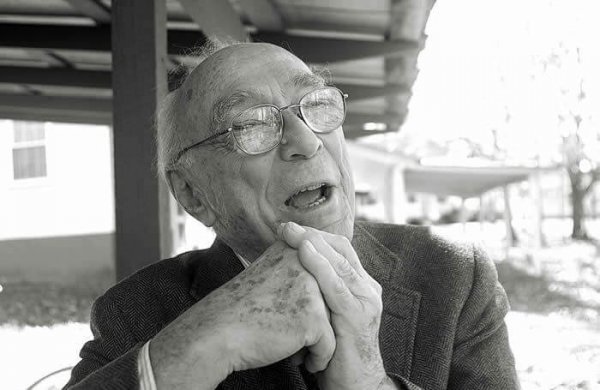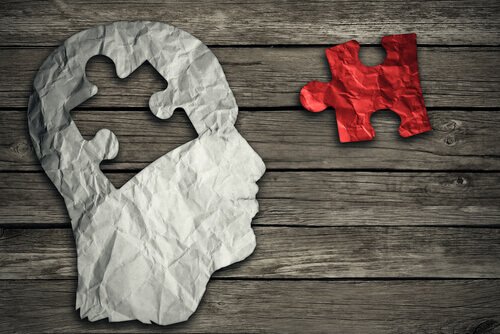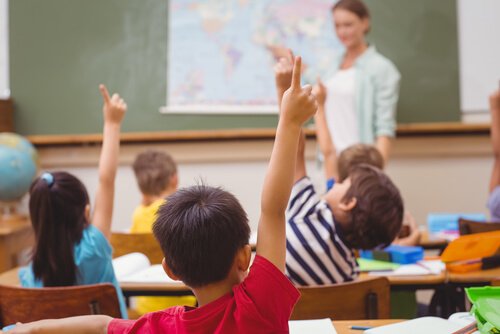Jerome Bruner's 9 Theories for Better Education

Jerome Bruner is one of the authors of a revolution in cognitive psychology following the classic computational paradigms. According to his point of view, psychology had fallen into an overly computational and mechanical paradigm.
To counter that, Bruner advocated for a discipline based on cultural psychology. His argument was that no brain activity is independent of the social context in which it happens. For Bruner, it was impossible to understand what happens in the mind without accounting for cultural context.
Bruner made great contributions to educational psychology — from cognitive psychology to learning theories. Jerome Bruner analyzed the implications of cultural psychology on education. With it, he sought to make changes in an educational system based on reductionist ideas and memorization. Bruner wanted constructivist, individually focused education.
To do that, Jerome Bruner proposed 9 theories that educational psychology should adapt to improve the educational system. Without further ado, let’s take a closer look at his theories.

The educational theories of Jerome Bruner
Perspectivism
First, let’s talk about one of the main ideas behind Bruner’s concepts. He believed that all knowledge creation is relative to the perspective on which it is built. The meanings aren’t absolute or objective.
They depend, in a large part, on the subject’s point of view. To understand the meaning implies understanding it along with all of the other possibilities. They will be correct or incorrect depending on the context’s perspective.
The interpretations of meaning will show us the accepted ways of constructing reality in a culture. Individuals, then, interpret those ways through their own cognitive filter. In that way, we all end up with constructions that are similar and unique at the same time.

The theory of limits
The next theory is about the existing limitations on meaning-making. Jerome Bruner talked about two important limits that come into play in when we make meaning.
- The first is inherent in the way that human beings work. Our evolutionary process specialized us to know, think, feel, and perceive in a certain way.
- The second limit alludes to the constraints that the symbolic system imposes. This is the system that we use to carry out mental operations. The Sapir and Whorf hypothesis is the basis for this limitation. It affirms that language affects the way you express or formulate thoughts.
Constructivist theory
When we talk about the construction of knowledge and meaning-making, we must start from a constructivist paradigm. Constructivism says that the reality we live in is a construction. In the words of Nelson Goodman, “reality is made, not found.”
Consequently, society should base education on helping children acquire the cultural tools they need to make meaning in a critical and adaptive way. You could say that the educational system should be producing good architects and builders of knowledge. It shouldn’t be imparting knowledge.

The interactional theory
The exchange of knowledge, like any human exchange, supposes the existence of an interacting community of people. For example, children learn about culture and worldview from their interaction with others. People often say that this interrelated community is born out of the gift of language.
However, it is actually due to the strong intersubjectivity between individuals. The human ability to understand other people’s minds forms the basis of this intersubjectivity (theory of mind).
Externalization theory
This theory is based on the idea that the goal of all collective cultural activity is to create “works” or external products. Therefore, the benefit of externalizing culture is the creation a social identity. This identity fosters collective solidarity.
These externalized works create a group of shared ways of thinking. As a result, the cooperation towards a common goal is easier. The use of externalizations (i.e. books) is the basis of the education system. The system uses books to transmit how we should act. And that, in turn, depends on the culture in which the education system exists.
Instrumentalist theory
Education has consequences. It doesn’t matter how we educate or what the culture is. It influences the lives of those who receive it. Also, we know that the consequences are instrumental for people. Likewise (in a less personal sense) they are instruments of culture and its institutions.
This theory emphasizes that education is never neutral. It always has social and economic consequences. Those consequences will be of instrumental use to some powers or others. Education, then, is a political subject in the broadest sense.

Institutional theory
Jerome Bruner’s seventh theory is institutional. He said that as education becomes institutionalized in the developed world, it behaves as institutions behave. The role that education plays, however, distinguishes it from other institutions. Its goal is to prepare children to take a more active part in other institutions related to the culture.
Consequently, the institutionalization of education has many implications for education itself. Thus, the nature of education determines the functions that each actor in education has. It also determines the status and respect they receive.
Identity and self-esteem theory
Perhaps the most universal element of the human experience is the phenomenon of “self.” Another way to describe it is “self-concept” or “self-awareness.” We know ourselves because of our own internal experience.
We also recognize the existence of other “selves” in the minds of others. Some branches of social psychology posit that self-awareness only happens because of the existence of others’ identities.
Therefore, education plays an important role in the formation of self-awareness and self-esteem. That’s why it is essential that the educational system take into account the consequences of formal instruction on the formation of personal identity.

The narrative theory
Lastly, we have narrative theory. This theory alludes to ways of thinking and feeling, specifically, the ways that individuals think and feel when they create the individual world they live in.
For Bruner, an essential part of this process is narrative capacity when creating stories. In fact, this is one of Bruner’s greatest contributions to psychology. He brought attention to the importance of narration in cultural psychology.
People have always assumed that narrative ability comes naturally and need not be taught. But if you look more closely, you see that is not true at all. In fact, education significantly modifies people’s narrative quality and ability. That’s why it is important to monitor the influence that the educational system has on narration.
Jerome Bruner is one of the authors of a revolution in cognitive psychology following the classic computational paradigms. According to his point of view, psychology had fallen into an overly computational and mechanical paradigm.
To counter that, Bruner advocated for a discipline based on cultural psychology. His argument was that no brain activity is independent of the social context in which it happens. For Bruner, it was impossible to understand what happens in the mind without accounting for cultural context.
Bruner made great contributions to educational psychology — from cognitive psychology to learning theories. Jerome Bruner analyzed the implications of cultural psychology on education. With it, he sought to make changes in an educational system based on reductionist ideas and memorization. Bruner wanted constructivist, individually focused education.
To do that, Jerome Bruner proposed 9 theories that educational psychology should adapt to improve the educational system. Without further ado, let’s take a closer look at his theories.

The educational theories of Jerome Bruner
Perspectivism
First, let’s talk about one of the main ideas behind Bruner’s concepts. He believed that all knowledge creation is relative to the perspective on which it is built. The meanings aren’t absolute or objective.
They depend, in a large part, on the subject’s point of view. To understand the meaning implies understanding it along with all of the other possibilities. They will be correct or incorrect depending on the context’s perspective.
The interpretations of meaning will show us the accepted ways of constructing reality in a culture. Individuals, then, interpret those ways through their own cognitive filter. In that way, we all end up with constructions that are similar and unique at the same time.

The theory of limits
The next theory is about the existing limitations on meaning-making. Jerome Bruner talked about two important limits that come into play in when we make meaning.
- The first is inherent in the way that human beings work. Our evolutionary process specialized us to know, think, feel, and perceive in a certain way.
- The second limit alludes to the constraints that the symbolic system imposes. This is the system that we use to carry out mental operations. The Sapir and Whorf hypothesis is the basis for this limitation. It affirms that language affects the way you express or formulate thoughts.
Constructivist theory
When we talk about the construction of knowledge and meaning-making, we must start from a constructivist paradigm. Constructivism says that the reality we live in is a construction. In the words of Nelson Goodman, “reality is made, not found.”
Consequently, society should base education on helping children acquire the cultural tools they need to make meaning in a critical and adaptive way. You could say that the educational system should be producing good architects and builders of knowledge. It shouldn’t be imparting knowledge.

The interactional theory
The exchange of knowledge, like any human exchange, supposes the existence of an interacting community of people. For example, children learn about culture and worldview from their interaction with others. People often say that this interrelated community is born out of the gift of language.
However, it is actually due to the strong intersubjectivity between individuals. The human ability to understand other people’s minds forms the basis of this intersubjectivity (theory of mind).
Externalization theory
This theory is based on the idea that the goal of all collective cultural activity is to create “works” or external products. Therefore, the benefit of externalizing culture is the creation a social identity. This identity fosters collective solidarity.
These externalized works create a group of shared ways of thinking. As a result, the cooperation towards a common goal is easier. The use of externalizations (i.e. books) is the basis of the education system. The system uses books to transmit how we should act. And that, in turn, depends on the culture in which the education system exists.
Instrumentalist theory
Education has consequences. It doesn’t matter how we educate or what the culture is. It influences the lives of those who receive it. Also, we know that the consequences are instrumental for people. Likewise (in a less personal sense) they are instruments of culture and its institutions.
This theory emphasizes that education is never neutral. It always has social and economic consequences. Those consequences will be of instrumental use to some powers or others. Education, then, is a political subject in the broadest sense.

Institutional theory
Jerome Bruner’s seventh theory is institutional. He said that as education becomes institutionalized in the developed world, it behaves as institutions behave. The role that education plays, however, distinguishes it from other institutions. Its goal is to prepare children to take a more active part in other institutions related to the culture.
Consequently, the institutionalization of education has many implications for education itself. Thus, the nature of education determines the functions that each actor in education has. It also determines the status and respect they receive.
Identity and self-esteem theory
Perhaps the most universal element of the human experience is the phenomenon of “self.” Another way to describe it is “self-concept” or “self-awareness.” We know ourselves because of our own internal experience.
We also recognize the existence of other “selves” in the minds of others. Some branches of social psychology posit that self-awareness only happens because of the existence of others’ identities.
Therefore, education plays an important role in the formation of self-awareness and self-esteem. That’s why it is essential that the educational system take into account the consequences of formal instruction on the formation of personal identity.

The narrative theory
Lastly, we have narrative theory. This theory alludes to ways of thinking and feeling, specifically, the ways that individuals think and feel when they create the individual world they live in.
For Bruner, an essential part of this process is narrative capacity when creating stories. In fact, this is one of Bruner’s greatest contributions to psychology. He brought attention to the importance of narration in cultural psychology.
People have always assumed that narrative ability comes naturally and need not be taught. But if you look more closely, you see that is not true at all. In fact, education significantly modifies people’s narrative quality and ability. That’s why it is important to monitor the influence that the educational system has on narration.
This text is provided for informational purposes only and does not replace consultation with a professional. If in doubt, consult your specialist.







